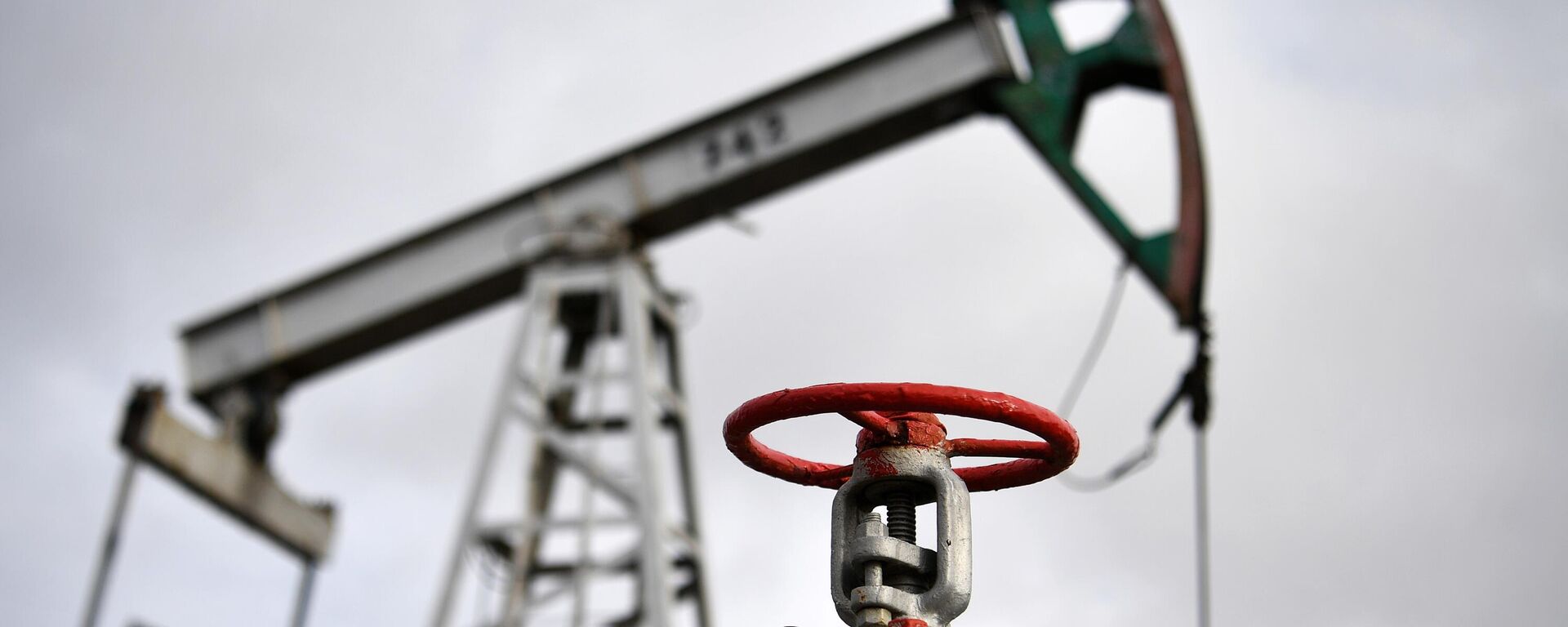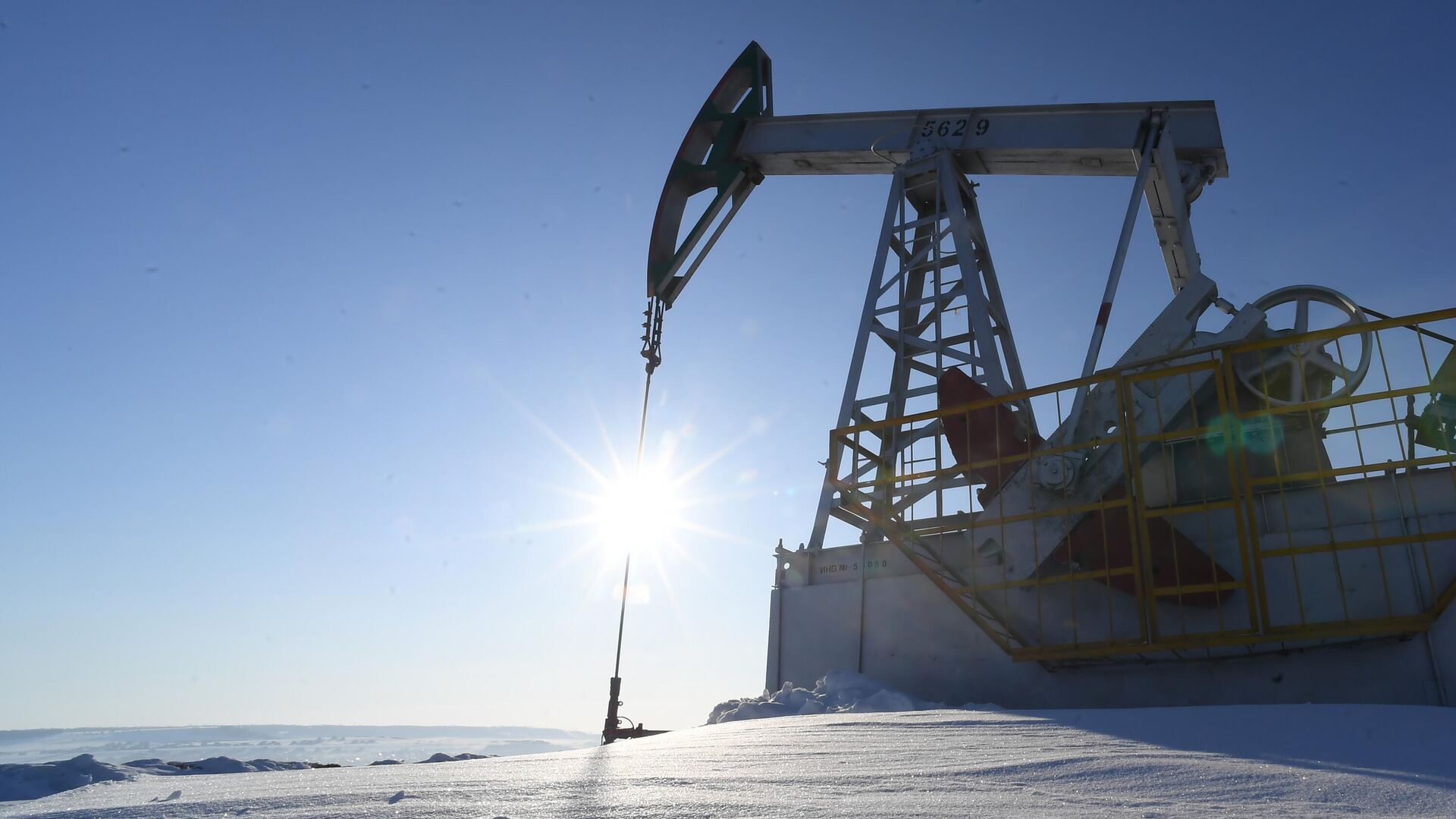https://sputnikglobe.com/20230201/putins-decree-on-russias-retaliatory-steps-over-eus-oil-price-cap-enters-into-force-1106873501.html
Putin’s Decree on Russia's Retaliatory Steps Over EU’s Oil Price Cap Enters Into Force
Putin’s Decree on Russia's Retaliatory Steps Over EU’s Oil Price Cap Enters Into Force
Sputnik International
Moscow has repeatedly condemned the oil price cap introduced by Western countries over its special operation in Ukraine as unacceptable, underlining that the country will never agree to this destruction of market pricing
2023-02-01T07:18+0000
2023-02-01T07:18+0000
2023-04-12T17:05+0000
russia
world
oil prices
decree
oil and gas
2022 russian oil price cap
g7
european union (eu)
https://cdn1.img.sputnikglobe.com/img/07e6/0b/0c/1104045331_0:11:2990:1693_1920x0_80_0_0_bf22c45c86f90bbb7c6667c5b51f3518.jpg
President Vladimir Putin’s decree on retaliatory measures in connection with the price cap the G7 and the EU introduced on Russian oil came into force on Wednesday.Under the decree that will expire on July 1, 2023, Russia bans the supply of oil to countries and legal entities that require compliance with the price cap in contracts. The ban on petroleum products is due to be announced by government ministers later this year.In late December, Kremlin spokesman Dmitry Peskov warned that oil and gas price ceilings are unacceptable to Russia, and that the country will never agree to the destruction of market pricing.This followed President Putin dubbing Brussels’ initiative to introduce a price cap on Russia an attempt at administrative regulating.The EU’s $60 per barrel price cap on Russian oil, which went into effect on December 5, will be reviewed every two months to remain at 5% below the International Energy Agency benchmark.The G7 nations and Australia also capped Russian oil exports at $60 per barrel. Moscow lambasted the price cap as an attempt to manipulate “the basic principles of free markets,” warning that Russia will not sell oil to those countries that adopt the cap.
https://sputnikglobe.com/20221231/scholars-supply-and-demand-fluctuations-to-have-more-effect-on-global-oil-markets-than-price-cap-1105948271.html
russia
Sputnik International
feedback@sputniknews.com
+74956456601
MIA „Rosiya Segodnya“
2023
Oleg Burunov
https://cdn1.img.sputnikglobe.com/img/07e4/09/0b/1080424846_0:0:2048:2048_100x100_80_0_0_3d7b461f8a98586fa3fe739930816aea.jpg
Oleg Burunov
https://cdn1.img.sputnikglobe.com/img/07e4/09/0b/1080424846_0:0:2048:2048_100x100_80_0_0_3d7b461f8a98586fa3fe739930816aea.jpg
News
en_EN
Sputnik International
feedback@sputniknews.com
+74956456601
MIA „Rosiya Segodnya“
Sputnik International
feedback@sputniknews.com
+74956456601
MIA „Rosiya Segodnya“
Oleg Burunov
https://cdn1.img.sputnikglobe.com/img/07e4/09/0b/1080424846_0:0:2048:2048_100x100_80_0_0_3d7b461f8a98586fa3fe739930816aea.jpg
eu's and g7's price cap on russian oil, russian special military operation in ukraine, russian president vladimir putin's decree on retaliatory measures against price cap on russian oil
eu's and g7's price cap on russian oil, russian special military operation in ukraine, russian president vladimir putin's decree on retaliatory measures against price cap on russian oil
Putin’s Decree on Russia's Retaliatory Steps Over EU’s Oil Price Cap Enters Into Force
07:18 GMT 01.02.2023 (Updated: 17:05 GMT 12.04.2023) Moscow has repeatedly condemned the oil price cap introduced by Western countries over its special operation in Ukraine as unacceptable, underlining that the country will never agree to this destruction of market pricing.
President Vladimir
Putin’s decree on retaliatory measures in connection with the price cap the G7 and the EU introduced on Russian oil came into force on Wednesday.
Under the decree that will expire on July 1, 2023, Russia bans the supply of oil to countries and legal entities that require compliance with the price cap in contracts. The ban on petroleum products is due to be announced by government ministers later this year.
In late December, Kremlin spokesman Dmitry Peskov warned that
oil and gas price ceilings are unacceptable to Russia, and that the country will never agree to the destruction of market pricing.

31 December 2022, 09:45 GMT
This followed President Putin dubbing Brussels’ initiative to introduce a price cap on Russia an attempt at administrative regulating.
“You know, this is a slightly different regulation than an attempt to regulate oil prices. Here, the European Commission talked more about the need to regulate the situation on the stock exchange, linking it to LNG, saying that prices should be correlated with LNG prices and so on, but still it is an attempt to administratively regulate prices," Putin said at the time, adding that Moscow reserves the right to retaliate in the event that Gazprom's contracts are violated.
The
EU’s $60 per barrel price cap on
Russian oil, which went into effect on December 5, will be reviewed every two months to remain at 5% below the International Energy Agency benchmark.
The G7 nations and Australia also capped Russian oil exports at $60 per barrel. Moscow lambasted the price cap as an attempt to manipulate “the basic principles of free markets,” warning that Russia will not sell oil to those countries that adopt the cap.






